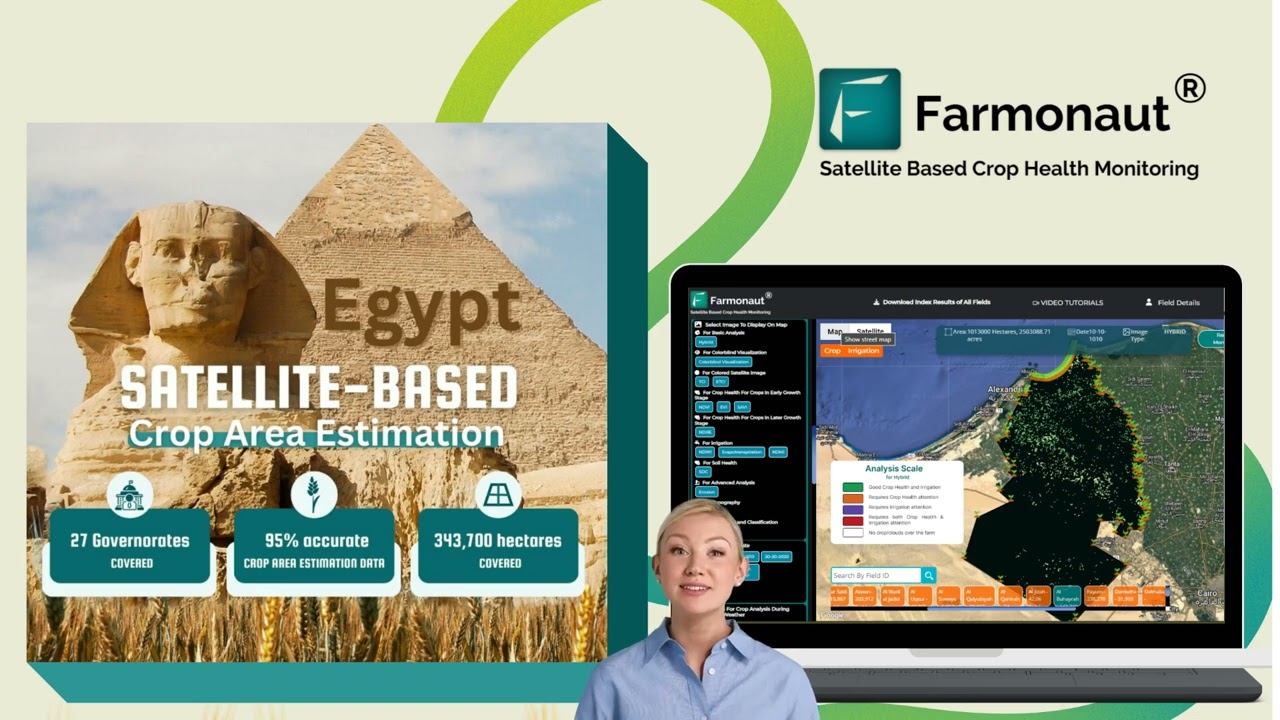Revolutionizing Agritech: How Singapore’s Pivot East Program Empowers UK and EU Startups to Conquer Asia-Pacific Markets
“Singapore’s Pivot East Program targets the Asia-Pacific region, projected to account for over 60% of global food consumption by 2030.”

In the ever-evolving landscape of global agriculture, we are witnessing a groundbreaking initiative that promises to reshape the future of agrifood innovation. The Pivot East Program, launched in Singapore, is set to bridge the gap between European agricultural technology and the burgeoning Asia-Pacific market. This innovative program is not just another incubator; it’s a catalyst for change in the agritech space, offering a unique opportunity for UK and EU startups to scale their operations and make a significant impact in one of the world’s most dynamic regions.
As we delve into the intricacies of this program, it’s crucial to understand the context in which it operates. The Asia-Pacific region is poised to dominate global food consumption in the coming decades, presenting both challenges and opportunities for agrifood tech startups. Singapore, with its strategic location and robust infrastructure, serves as the perfect launchpad for these ambitious enterprises.
The Genesis of the Pivot East Program
The Pivot East Program is the brainchild of visionary leaders in the agritech sector who recognized the need for a bridge between European innovation and Asian markets. This initiative aims to address critical global challenges such as food security, sustainable agriculture, and the adoption of smart farming technologies. By focusing on these key areas, the program aligns itself with some of the most pressing issues facing our planet today.
- Facilitating market entry for UK and EU agritech startups in Asia-Pacific
- Promoting sustainable food production techniques
- Encouraging the development and adoption of smart farming technologies
- Fostering international collaboration in agrifood innovation
The program’s structure is designed to provide comprehensive support to participating startups, from refining their business strategies to connecting them with potential investors in the regional agritech ecosystem. This holistic approach ensures that these companies are well-equipped to navigate the complexities of a new market.
The Asia-Pacific Agritech Landscape: A Land of Opportunity
The Asia-Pacific region presents a unique set of opportunities and challenges for agritech startups. With a rapidly growing population and increasing urbanization, the demand for innovative food production solutions is higher than ever. This is where programs like Pivot East come into play, offering a gateway for international startups to tap into this vast potential.
“The initiative aims to connect European agritech startups with a $5 trillion food and agriculture market in the Asia-Pacific region.”
Let’s take a closer look at some of the key factors that make the Asia-Pacific region such an attractive market for agritech innovation:
- Rapid population growth and urbanization driving demand for efficient food production
- Increasing adoption of technology in traditional farming practices
- Growing awareness of sustainability and the need for eco-friendly agricultural solutions
- Government initiatives supporting agritech development and adoption
These factors create a fertile ground for agritech startups to grow and thrive, especially those bringing innovative solutions from Europe to address local challenges.
The Role of Singapore in Agritech Innovation
Singapore, despite its small size, has positioned itself as a hub for agritech innovation in Southeast Asia. The city-state’s commitment to becoming a “living laboratory” for agritech solutions makes it an ideal base for startups looking to expand into the region.
Key advantages of Singapore as an agritech hub include:
- Strong government support for agritech initiatives
- World-class research facilities and universities
- A robust startup ecosystem with access to funding and mentorship
- Strategic location as a gateway to Southeast Asian markets
These factors make Singapore the perfect launchpad for UK and EU startups looking to make their mark in the Asia-Pacific agritech scene. The Pivot East Program leverages these advantages to provide a solid foundation for participating companies.
Bridging Innovation: From Europe to Asia
One of the most exciting aspects of the Pivot East Program is its role in facilitating the transfer of innovative agricultural technologies from Europe to Asia. This cross-pollination of ideas and solutions has the potential to create significant impact in addressing regional agricultural challenges.
European agritech startups bring with them a wealth of experience in areas such as:
- Precision agriculture techniques
- AI-driven crop management systems
- Sustainable farming practices
- Advanced soil and water management solutions
By adapting these technologies to the unique conditions of the Asia-Pacific region, startups can create tailored solutions that address local needs while leveraging global expertise.
The Impact of Smart Farming Technologies
Smart farming technologies are at the heart of the agritech revolution, and the Pivot East Program places a strong emphasis on their development and implementation. These technologies have the potential to transform agricultural practices, increasing efficiency and sustainability across the board.

Some of the key smart farming technologies being developed and implemented include:
- IoT sensors for real-time crop monitoring
- Drone technology for precision agriculture
- AI-powered predictive analytics for crop yield optimization
- Blockchain solutions for supply chain transparency
These technologies not only improve productivity but also contribute to more sustainable farming practices, aligning with global efforts to combat climate change and ensure food security.
Sustainable Agriculture Investment: A Key Focus
Sustainability is a core pillar of the Pivot East Program, reflecting the growing global emphasis on environmentally friendly agricultural practices. The program encourages startups to develop solutions that not only increase productivity but also minimize environmental impact.
Areas of focus for sustainable agriculture investment include:
- Water-efficient irrigation systems
- Organic pest control methods
- Vertical farming solutions for urban environments
- Waste reduction and circular economy approaches in agriculture
By prioritizing sustainability, the program ensures that the solutions developed by participating startups are not only commercially viable but also contribute to a more resilient and eco-friendly global food system.
The Role of Data and Analytics in Modern Agriculture
In the era of big data, agriculture is no exception to the transformative power of information and analytics. The Pivot East Program recognizes the critical role that data-driven decision-making plays in modern farming practices.
Key areas where data and analytics are making a significant impact include:
- Precision farming techniques based on real-time data
- Predictive analytics for crop yield optimization
- Weather forecasting and climate adaptation strategies
- Supply chain optimization through data-driven insights
By leveraging these data-driven approaches, startups in the Pivot East Program can develop more efficient and effective solutions for the Asia-Pacific agricultural sector.
Farmonaut: Pioneering Satellite-Based Farm Management
In the context of innovative agritech solutions, it’s worth highlighting the contributions of companies like Farmonaut. While not directly associated with the Pivot East Program, Farmonaut exemplifies the kind of cutting-edge technology that the program aims to bring to the Asia-Pacific region.
Farmonaut offers advanced satellite-based farm management solutions that align perfectly with the goals of precision agriculture and sustainable farming practices. Their platform provides valuable services such as:
- Real-time crop health monitoring
- AI-based advisory systems
- Blockchain-based traceability
- Resource management tools
These solutions demonstrate the potential for technology to revolutionize agriculture, making precision farming more accessible and affordable for farmers worldwide.
For those interested in exploring Farmonaut’s offerings:


The Future of Agrifood Innovation in Asia-Pacific
As we look to the future, the Pivot East Program is poised to play a pivotal role in shaping the agrifood landscape of the Asia-Pacific region. By bringing together the best of European innovation with the dynamic markets of Asia, the program is creating a fertile ground for groundbreaking solutions to emerge.
Some of the key trends we can expect to see in the coming years include:
- Increased adoption of AI and machine learning in agriculture
- Greater emphasis on vertical farming and urban agriculture solutions
- Development of climate-resilient crop varieties
- Integration of blockchain technology for improved traceability and transparency
These trends, coupled with the innovative spirit fostered by programs like Pivot East, promise to create a more resilient, efficient, and sustainable agrifood ecosystem in the region.
Comparison of Agritech Startup Opportunities
| Factors | Singapore | EU/UK |
|---|---|---|
| Market Size (estimated) | $5 trillion (Asia-Pacific) | $500 billion |
| Growth Potential | High | Moderate |
| Government Support | Strong | Varied |
| Access to Investors | Excellent | Good |
| Technological Infrastructure | Advanced | Advanced |
| Expansion Opportunities | High – Gateway to Asia-Pacific | Moderate – Established Markets |
Challenges and Opportunities for UK and EU Startups
While the opportunities in the Asia-Pacific agritech market are immense, UK and EU startups face unique challenges as they seek to expand into this region. Understanding and addressing these challenges is crucial for success.
Some of the key challenges include:
- Cultural and language barriers
- Differences in regulatory environments
- Adapting technologies to local agricultural practices
- Building trust and credibility in new markets
However, these challenges also present opportunities for startups to innovate and create tailored solutions that address the specific needs of the Asia-Pacific market. The Pivot East Program provides crucial support in navigating these challenges, offering mentorship, networking opportunities, and local market insights.
The Role of Partnerships in Agritech Success
Collaboration is key in the agritech sector, and the Pivot East Program recognizes the importance of fostering partnerships between startups, local businesses, and research institutions. These partnerships can accelerate innovation and help startups gain a foothold in new markets.
Benefits of strategic partnerships include:
- Access to local knowledge and networks
- Shared resources and expertise
- Increased credibility in new markets
- Opportunities for co-development of solutions
By facilitating these connections, the Pivot East Program creates a supportive ecosystem that enhances the chances of success for participating startups.
Measuring Impact: Key Performance Indicators
As with any innovative program, measuring the impact of the Pivot East initiative is crucial for assessing its success and identifying areas for improvement. The program employs a range of key performance indicators (KPIs) to track progress and outcomes.
Some of the key metrics include:
- Number of startups successfully entering the Asia-Pacific market
- Investment attracted by participating companies
- Job creation in both origin and destination countries
- Adoption rates of new technologies by local farmers
- Environmental impact metrics (e.g., reduction in water usage, carbon emissions)
By closely monitoring these KPIs, the program can continuously refine its approach and maximize its impact on the agritech ecosystem.
The Global Agrifood Ecosystem: A Collaborative Future
The Pivot East Program is more than just a bridge between European innovation and Asian markets; it’s a catalyst for creating a more interconnected and resilient global agrifood ecosystem. By fostering collaboration across borders, the program is helping to address some of the most pressing challenges facing agriculture today.
Key aspects of this collaborative future include:
- Knowledge sharing between diverse agricultural regions
- Cross-pollination of ideas and technologies
- Development of globally applicable solutions
- Creation of international standards for sustainable agriculture
As we move forward, initiatives like the Pivot East Program will play an increasingly important role in shaping a more sustainable and efficient global food system.
Conclusion: A New Era of Agrifood Innovation
The Pivot East Program represents a bold step towards a more interconnected and innovative agrifood sector. By bridging the gap between European agritech expertise and the burgeoning markets of Asia-Pacific, this initiative is paving the way for a new era of agricultural innovation.
As we’ve explored throughout this article, the program offers numerous benefits:
- Access to a vast and growing market for UK and EU startups
- Promotion of sustainable and efficient farming practices
- Facilitation of knowledge transfer and cross-cultural collaboration
- Support for the development and adoption of cutting-edge technologies
The future of agriculture is undoubtedly global, and programs like Pivot East are essential in ensuring that innovation knows no borders. As we look to address the challenges of feeding a growing world population while preserving our planet, such collaborative initiatives will be key to our success.
For startups, investors, and agricultural stakeholders alike, the Pivot East Program offers an exciting opportunity to be part of this transformative journey. By participating in this initiative, companies can not only expand their reach but also contribute to shaping a more sustainable and efficient global food system.
As we move forward, it’s clear that the path to agricultural innovation and food security lies in collaboration, technology adoption, and a global perspective. The Pivot East Program is leading the way in this new era of agrifood innovation, and its impact will undoubtedly be felt across the Asia-Pacific region and beyond for years to come.
FAQ Section
Q: What is the Pivot East Program?
A: The Pivot East Program is an initiative launched in Singapore to connect UK and EU agritech startups with opportunities in the Asia-Pacific market. It aims to foster innovation, promote sustainable agriculture, and address food security challenges in the region.
Q: Who can participate in the Pivot East Program?
A: The program is primarily designed for agritech startups from the UK and EU looking to expand their operations into the Asia-Pacific market.
Q: What kind of support does the program offer?
A: Participants receive tailored support, including assistance in refining business strategies, connections to potential investors, mentorship, and guidance on navigating the local market landscape.
Q: Why is Singapore chosen as the hub for this program?
A: Singapore offers strategic advantages such as strong government support for agritech, world-class research facilities, a robust startup ecosystem, and a prime location as a gateway to Southeast Asian markets.
Q: How does the program address sustainability in agriculture?
A: The Pivot East Program emphasizes sustainable agriculture investment, encouraging the development of eco-friendly farming practices, water-efficient systems, and technologies that minimize environmental impact.
Q: What are some of the challenges faced by startups entering the Asia-Pacific market?
A: Challenges include cultural and language barriers, differences in regulatory environments, adapting technologies to local agricultural practices, and building trust in new markets.
Q: How does the program measure its success?
A: Key performance indicators include the number of startups successfully entering the Asia-Pacific market, investment attracted, job creation, technology adoption rates, and environmental impact metrics.

















